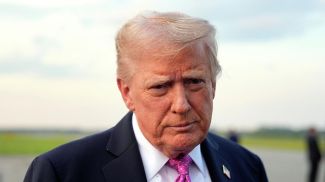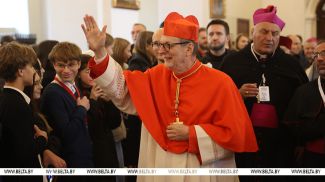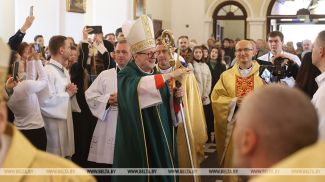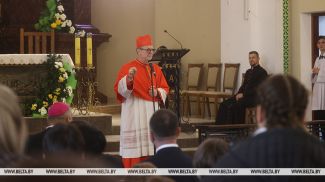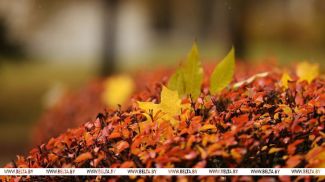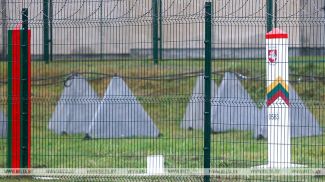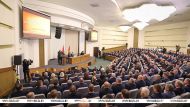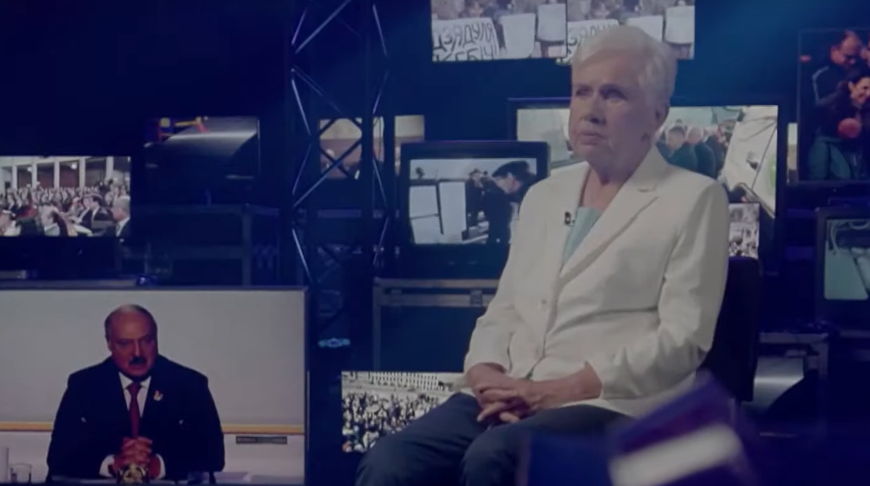
MINSK, 12 July (BelTA) – The former chairwoman of the Central Election Commission (CEC) of Belarus Lidia Yermoshina shared recollections of how the West tried to bribe her in the early 2000s. The relevant facts were mentioned as part of the documentary “One for all” released by the Belarusian TV channel ONT on the occasion of the 30th anniversary of the introduction of presidency in Belarus, BelTA has learned.
People in the West and in the East were displeased with Aleksandr Lukashenko’s policy at various stages of development of the Belarusian state. However, nobody has managed to sway the Belarusian president but some opponents of the government have been bought, authors of the documentary noted.
“I think that certain forces in the West and the East bribed and kept an eye at least on those, who were classified as democratic politicians. I can say that a prominent politician told me shortly before the election in 2001 that Uncle Sam was wondering how much I cost. That’s it,” said Lidia Yermoshina, who was the head of Belarus’ Central Election Commission in 1996-2021.
Authors of the documentary pointed out that political opponents, who are as a rule financed by Western non-commercial and non-governmental organizations, step up their efforts during electoral campaigns. They could not care less about life in Belarus in between the campaigns.
“I ran for the presidency in 2001. Goncharik, Domash, Lukashenko, and I did. Do you want to say that some of them could beat Lukashenko? For real? It is stupid. But there was so much hype. All these presidential campaigns were organized only to allow the West to talk about violations later on. Nothing was violated. People simply voted for Lukashenko,” said Sergei Gaidukevich, leader of the Liberal Democratic Party of Belarus in 1995-2019.
Lidia Yermoshina added that no person could equal Aleksandr Lukashenko in the political arena “in terms of influence, political might, and even possibly some kind of manly power he exuded from literally every cell”.
The opposition tried to spin the wheel of political fortune as much as possible during the presidential election in 2010, authors of the documentary reminded. The opposition encouraged supporters to take to the streets in order to protest long before the voting process began.
“When we saw political… I cannot even choose the right word. We saw nobodies. Who couldn’t even speak on television: a person would be silent for 1.5 minutes on television. Those were the presidential candidates. And I said back then that I am not going to participate in it. All of them went [to protest]. And did they go to the polls to win or with some program? No. Why did they go there? You know why: in order to start some turmoil later on,” Sergei Gaidukevich said.
“There was an encircled minibus. Two presidential candidates were inside: Neklyayev and Statkevich. They had clubs and rebars. They were prepared to go to the square where people were gathering up. We tried to start negotiations and tell them something. But we started to receive hits to the head from behind and we were forced to use special tools in this situation,” recalled Nikolai Karpenkov, Deputy Internal Affairs Minister, Commander of the Interior Troops, who led the counterterrorist unit Almaz in 2003-2010.




